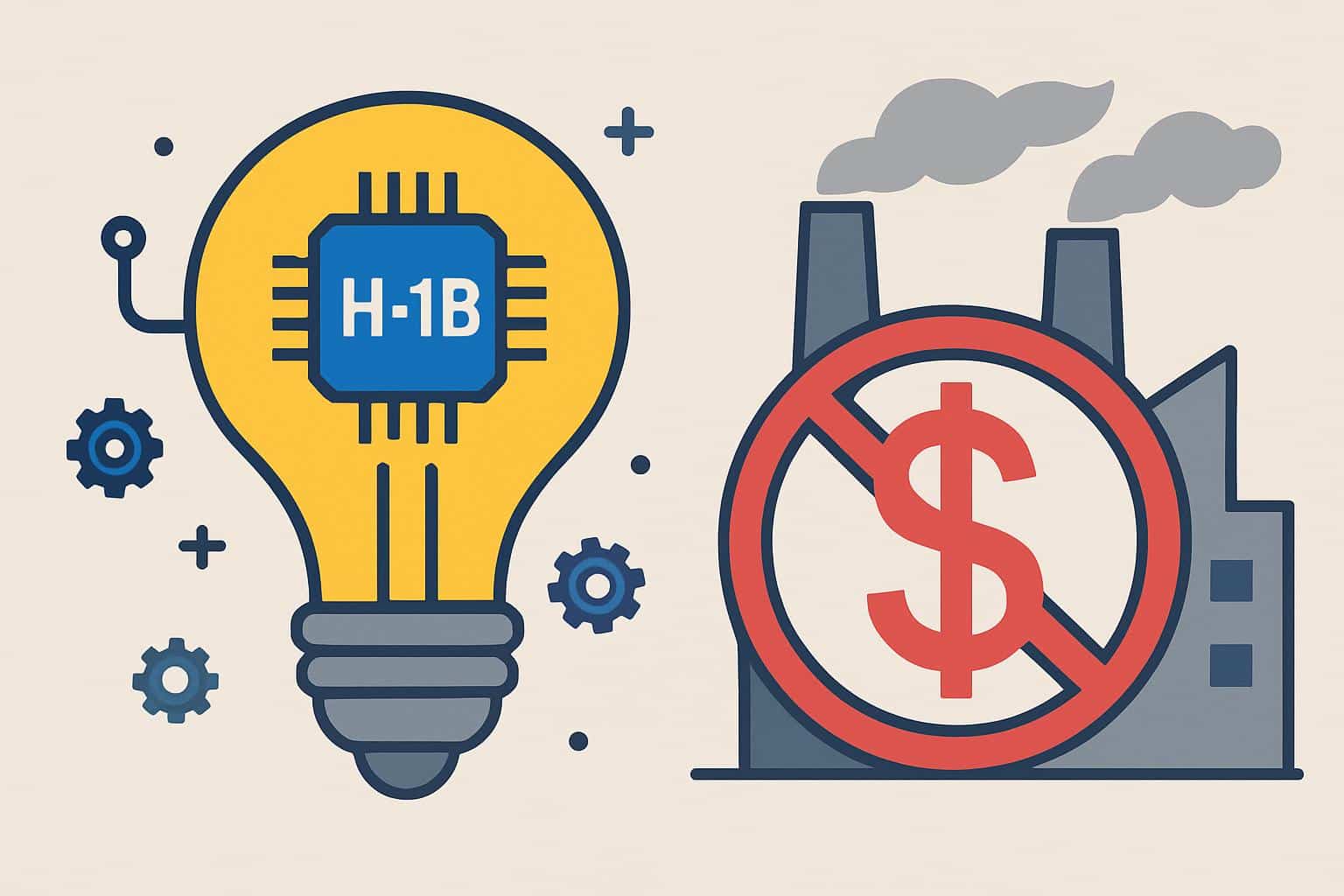Startup chiefs nationwide say a new $100,000 application fee for H-1B visas is essentially a talent tariff that will send iconoclastic jobs and IP offshore. They say that the policy will do little to protect American workers and a lot to price early-stage companies out of the global talent pool they need to build their core teams in AI, cybersecurity, biotech, and advanced software.
“Big Tech can swallow this. Startups can’t,” said Amr Awadallah, founder of AI company Vectara, echoing a leitmotif common among early-stage CEOs and CTOs who view the hike as an innovation-killer rather than a guardrail.

What the $100,000 H-1B application fee change actually does
The H-1B program enables U.S. employers to hire highly skilled foreign workers in specialty occupations such as data science, technology, engineering, and mathematics. The new fee, paid by employers per petition, goes from a few thousand dollars to $100,000 — complemented by a forthcoming hike in mandated wage levels. That makes what was already a complex and expensive process a capital-intensive gamble for young companies with limited runway.
There are just 85,000 new H-1Bs available each year, including 20,000 for those with advanced degrees from U.S. universities, according to U.S. Citizenship and Immigration Services. Hunger for them outstrips supply, and they are awarded by lottery in the spring. According to USCIS data, the bulk goes to Indian nationals, with China and other countries next in line.
There are an estimated 700,000 workers with H-1Bs in the U.S. and more than 500,000 dependents, according to estimates by the advocacy organization FWD.us. Many H-4 spouses are permitted to work under rules authorizing employment, attaching the economies of whole households to the program.
Startups Worry About A Tax On Their Hiring Engine
Founders call the fee a de facto hiring tax on the roles that themselves create new products and companies. H-1B talent was responsible for a previous successful exit, says Brian Sathianathan, co-founder and CTO at Iterate. “My co-founder and head of engineering were both on H-1Bs. At today’s prices, that company wouldn’t even have occurred,” he said.
The industry’s past history makes the point. Many among them have graduated to head global companies, underlining how it is the same talent that appears to be pursued by mature brands like Google and also those in the making such as Apple. Other pathways, like O-1 for “extraordinary ability,” have also historically been considerably more difficult to acquire, and far more time-consuming than the H-1B visa or green card — paths that early-stage teams rarely have the budget or bandwidth to pursue.
Investors warn of downstream effects. Hemant Mohapatra, a partner at Lightspeed Venture Partners who once spent several years on an H-1B, points out that immigrants are founders or co-founders of a substantial share of U.S. unicorns. “If you choke off the on-ramp, you begin starving out the pipeline of future founders,” he said.

The cost and competition math for $100,000 H-1B fees
Back-of-the-envelope calculations from startup lawyers and talent leaders suggest the new price tag could add billions to employers’ annual costs; at recent filing volumes, that might amount to nearly $5.5 billion a year. At many venture-backed teams, $100,000 per petition is competitive with a seed-stage engineering salary — leading to brutal trade-offs of headcount and immigration.
Some founders foresee a wave of offshoring. “My husband would never let me spend time in a stranger’s house and it was not super-hygienic.” (After news of the virus broke, she paid her landlord 600 euros to move into an apartment.) Jack Thorogood, chief executive of payroll platform Native Teams, said his company had seen a 50% rise in U.S. employers wanting to look into visa-free global hiring and remote work. By his calculations, a single H-1B hire at $100,000 is about the size of a small team based overseas in multiple markets.
Those who court tech talent — Canada, Germany, and the U.K., for example — stand to gain. Their fast-track visas and startup-friendly policies contrast sharply with a U.S. regime that by now tests just how much companies will pay to import skills. “This shift risks undercutting America’s tech leadership by making it cost-prohibitive to compete for the world’s best,” said Daniel Wigdor, a professor at the University of Toronto and founder of an AI venture studio.
Unanswered questions and legal knots around the new fee
Operational details remain murky. Employers still don’t know if the $100,000 or more will be refunded if a petition is denied, startup immigration attorney Sophie Alcorn adds, and what happens to a pending case once it gets swept into the new fee regime. That’s enough uncertainty to cause some teams to stop filing for would-be hires and aspiring founders.
The administration has said that some exemptions may be made for national interest cases, but it’s not clear what the criteria and timeline would be. Other pathways do exist — the O-1 for high achievers or cap-exempt H-1Bs sponsored by universities and nonprofits, for example — but they reach a mere sliver of applicants and rarely correspond to startup hiring needs on normal schedules.
Innovation Is Security And Security Is Innovation
Founders also argue against the national security justification for the policy. Jeffrey Wang, who co-founded the AI startup Exa.ai and is the son of H-1B immigrants, says importing frontier talent into U.S. corporations enhances security by focusing research, talent networks, and technology transfer at home. “Closing the door does not make us safer, it makes our competition stronger,” he said.
The immediate takeaway for startups is sobering. A six-figure fee on every H-1B petition tips the scales in favor of incumbents with deep pockets, and steers early innovation — and the jobs that come with it — away from American shores. For a nation that built its tech edge on open doors and big ideas, founders say this looks less like reform and more like a tariff on ambition.

